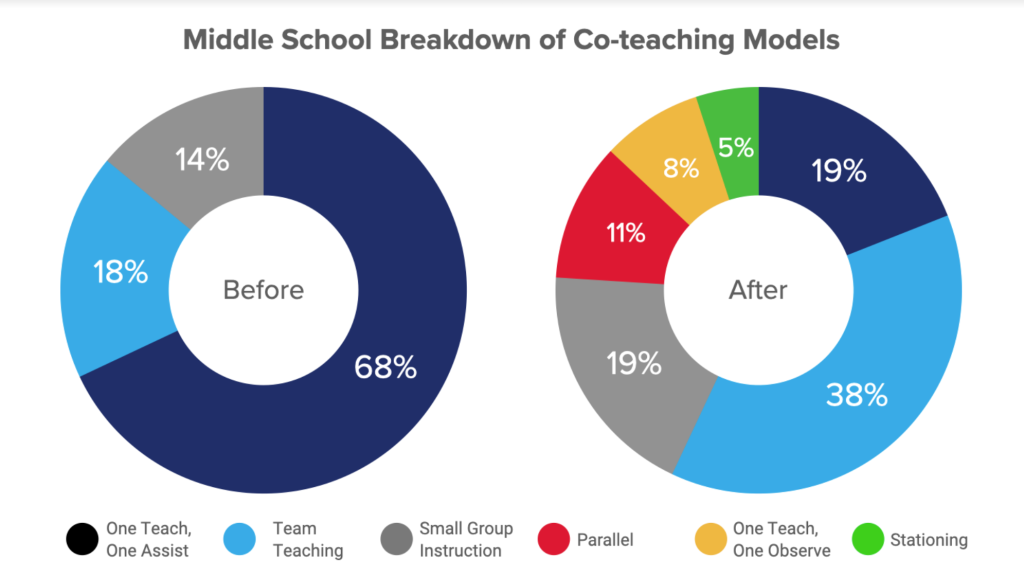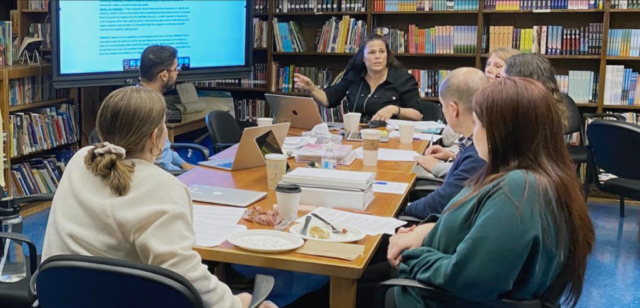Today we were so impressed with how the team at MS108 is doing small group instruction. The team has just completed Phase 1 in which teachers worked on mastering different co-teaching models and small group routines. According to Principal Gladstone, the default co-teaching model before they started this work was One Teach, One Assist. The goal by November was to see intentional and planned use of the co-teaching models that support small group instruction.
It wasn’t about what we wanted to see. It’s about what is best for kids at that time.
It wasn’t about what we wanted to see. It’s about what is best for kids at that time.
—Jen Tegano, Assistant Principal
The data below shows the change in co-teaching models before and after. Notice that the use of One Teach, One Assist dropped by more than 50% and small group instruction increased by 5%. Teachers are also exploring new styles of co-teaching like stationing and parallel teaching.
We’re adding more tools into our toolbox.
—Jen Glick, 7th & 8th grade teacher

Here’s what some teachers had to say about small group instruction:
- “I’m definitely more aware of my role in the lesson. There’s a lot more flexibility because you become a facilitator.”
- “I was surprised how much the kids loved it. I’ve noticed more student engagement. Students actually prefer this to whole group instruction.”
- “Students are more willing to take risks when they’re in a smaller group.”
- “Because of the small group, we’re able to get them not only to produce more but also get students to mastery. They’re pushing themselves more. They want to get better and improve.”
- “It helps me practice letting up some of my control.”
During their teacher meeting, the team discussed Phase 2 in which they will practice progress monitoring so that they can use student data to inform their small groupings, see whether or not the instruction is having the desired impact, and adjust accordingly.
They discussed questions like: how do you create a simple and brief assessment for progress monitoring? What does it mean for an assessment to be valid? To be reliable?
When you’re in these [improvement science] meetings and hearing these ideas, it makes it more conceivable. Having these meetings first makes implementation better.
—Maddie Santoro, 6th grade teacher
We applaud and cheer on the work happening at MS108 and look forward to hearing how the work builds and spreads.
